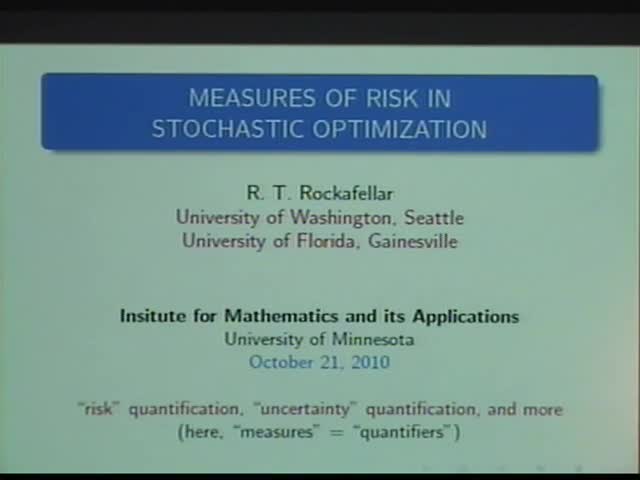Measures of risk in stochastic optimization
Presenter
October 21, 2010
Keywords:
- Stochastic, optimal
Abstract
A fundamental difficulty in stochastic optimization is the fact that
decisions may not be able pin down the values of future "costs," but
rather can only, within limits, shape their distributions as random variables.
An upper bound on a ramdom "cost" is often impossible, or too expensive, to
enforce with certainty, and so some compromise attitude must be taken to
the violations that might occur. Similarly, there is no instant
interpretation of what it might mean to minimize a random "cost", apart
from trying to determine a lowest threshold which would be exceeded only
to an acceptable degree.
Clearly, it is essential in this picture to have a
theoretical framework which provides guidelines about preferences and
elucidates their mathematical pros and cons. Measures of risk, coming from financial mathematics but finding uses
also in engineering, are the key. Interestingly, they relate also to
concepts in statistics and estimation. For example, standard deviation
can be replaced by a generalized measure of deviation which is not
symmetric between ups and downs, as makes sense in applications in which
overestimation may be riskier than underestimation.
